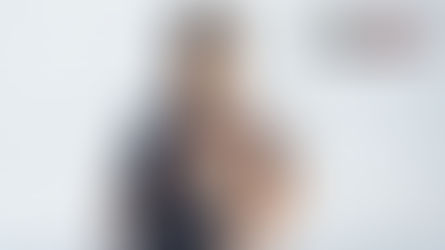The Death of the Fourth Wall: From Atlanta to Everywhere
- C. Aigner Ellis
- Aug 25, 2025
- 3 min read

Atlanta Season 16 of Real Housewives is where it all started. When Porsha Williams looked into the camera and called out Bravo for letting the women acknowledge production, that was the moment it hit me. I think that is when we finally realized we were officially at this cultural shift. The fourth wall was not just broken, it was declared dead on arrival. There are examples earlier of us seeing through it, sure, but this era we are in now feels officially created by Real Housewives of Atlanta Season 16.
Rob used to get so frustrated after Game of Thrones episodes. Not because of the dragons or the Red Wedding, but because of what came right after. HBO would run a 20-minute breakdown where producers explained every choice, every camera angle, every plot twist. For Rob, it killed the magic. Once you see the wires, the illusion is gone. But that was just the beginning. Soon, every show had its own recap podcast, behind-the-scenes clips, or cast confessionals. Audiences stopped being satisfied with just the performance. We demanded the process. That hunger for transparency prepared us for reality TV’s new era, where the process itself became the storyline.
Once upon a time, the fourth wall was sacred. Theater kids knew it as the imaginary boundary between the actors and the audience. In TV, breaking it was rare and powerful. Think Ferris Bueller’s Day Off, Deadpool, or Jim’s smirk at the camera in The Office. Those moments felt special because they disrupted the illusion. Fast forward to 2025, and that illusion is gone. We do not want distance anymore. We want access. We want receipts. We want the mess with the camera in frame.
Some of our favorite shows have been flirting with this collapse for years. Dear White People turned straight to the camera with biting asides, making us complicit in its critiques of privilege and performance. Awkward Black Girl, and later Insecure, made internal dialogue and direct-to-camera asides a signature, inviting us into Issa’s diary instead of keeping us at a distance. A Black Lady Sketch Show used surreal skits with coded winks, making viewers feel like they were in on the joke rather than just watching it. Iyanla: Fix My Life blurred the line between host, guest, and viewer, often addressing the audience directly to heighten the stakes. Dreaming Whilst Black and American Fiction thrive on self-awareness, calling out how stories are packaged, sold, and consumed, while making the audience co-conspirators in the critique.
And then there are the Housewives, the crown jewel of fourth-wall chaos. In Atlanta, when production tried to film inside NeNe’s closet, she snapped, and suddenly the producers were not just behind the cameras, they were in the storyline. In Salt Lake City, Lisa Barlow’s hot mic rant never meant for air played out for millions, erasing any illusion of privacy. In Beverly Hills, Denise Richards shouting “Bravo, Bravo, f---ing Bravo” in an attempt to shut down filming only guaranteed the footage would make it to air. Fans now know the “cast-funded trips” are really network-paid productions. The idea of Housewives as organic storytelling is long gone. It is performance art with corporate backing, and we are finally in on the con. Reality TV is not pretending anymore. It is showing us the strings, and we are still applauding the puppet show.
Which brings us back to Atlanta. RHOA Season 16 is not just another installment in a long-running franchise. It is the blueprint for a new kind of reality TV, where the wall is gone and the production itself is part of the drama. Porsha and the cast are not just living their lives on screen. They are narrating how their lives are being produced. And the audience is not just watching. We are collaborating in the spectacle.
The death of the fourth wall does not mean the end of storytelling. It means we are all in the story now. Rob was right when he said those behind-the-scenes breakdowns made it harder to believe in the magic. But maybe this new era is not about believing. Maybe it is about knowing, about owning the wires and the mess and the glare of the spotlight. The question is: what role do you want to play?

















Comments